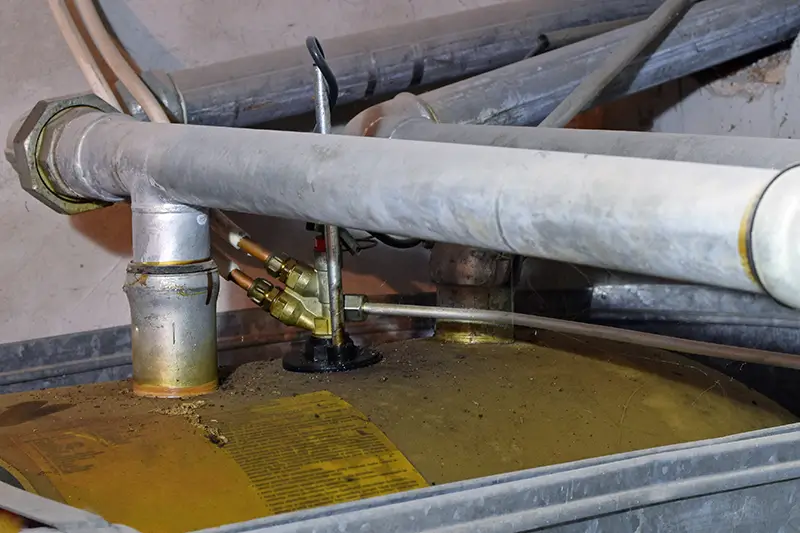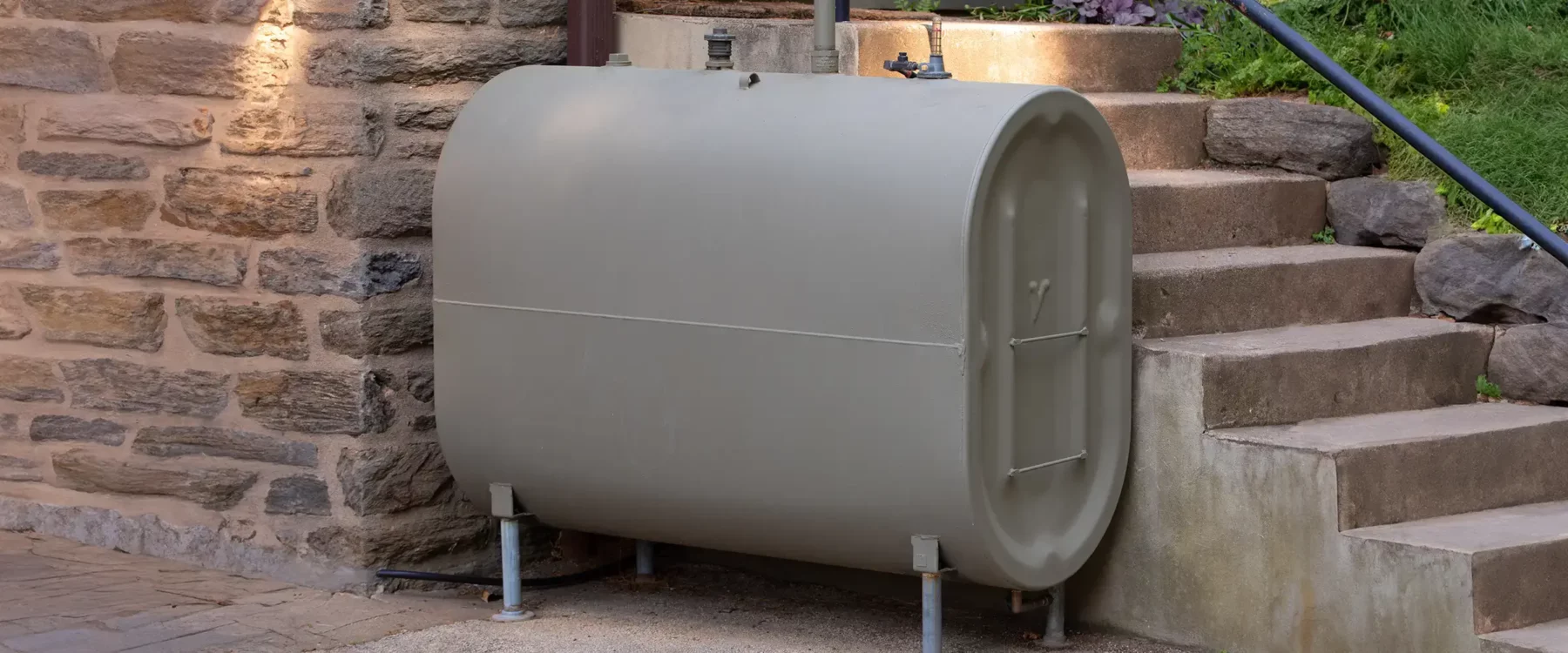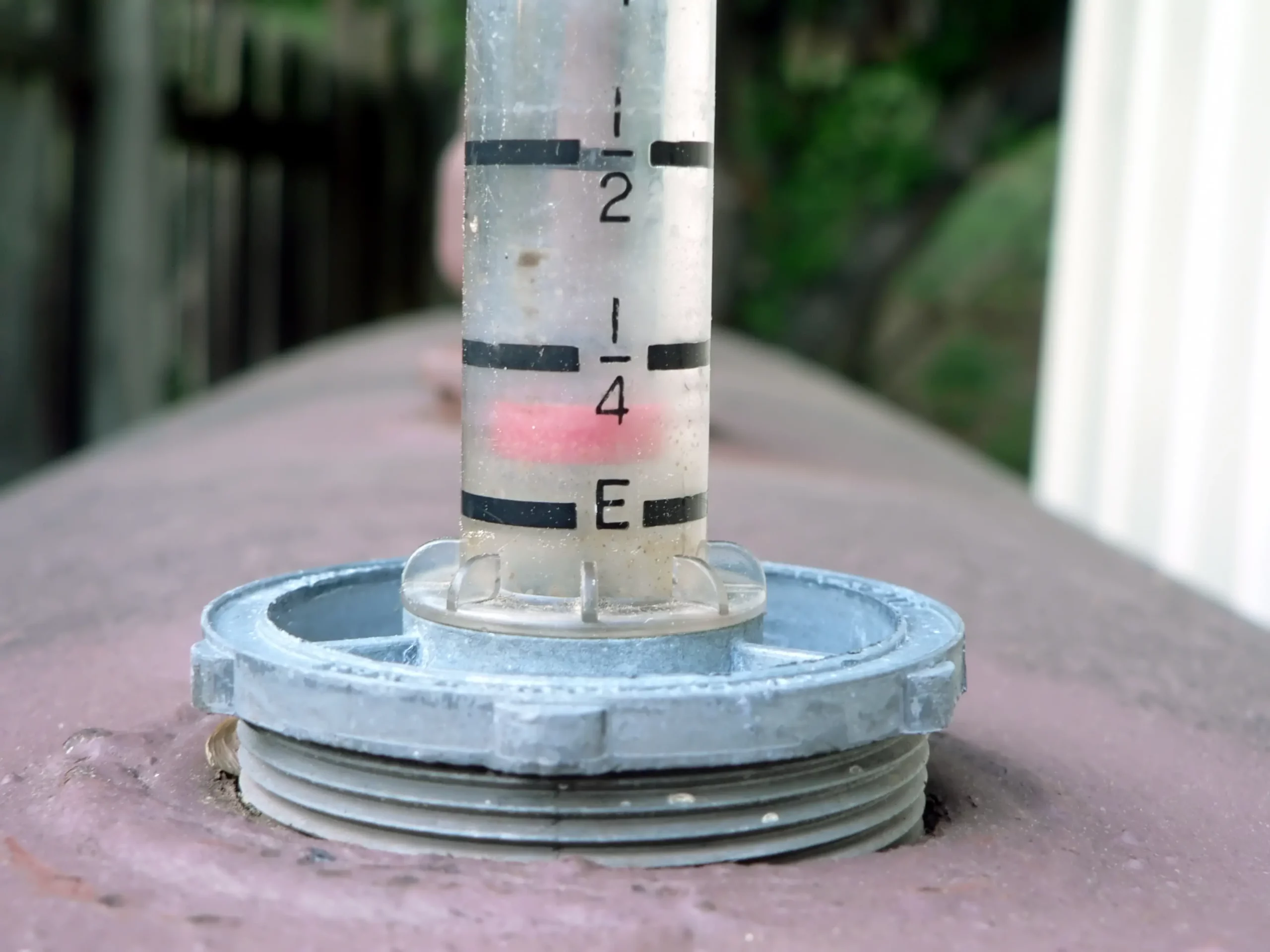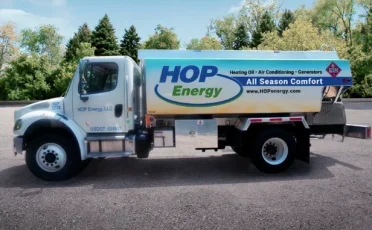Understanding how to read and manage your heating oil tank gauge is essential for efficient home heating. This guide combines detailed instructions with practical advice to ensure you always have enough heating oil.
Table of Contents
Understanding Gauge Components
Your heating oil tank gauge typically features a clear glass or plastic cylinder on top of the tank containing:
- – Float: This component rises and falls with the oil level.
- – Vial: The tube where the float moves.
- – Marker: A red indicator, usually attached to the float, shows the oil level with marked graduations representing tank capacity: Full, 3/4, 1/2, and 1/4.
Step-by-Step Guide to Reading Your Gauge
1) Locate Your Gauge: Usually found on top of the tank, the gauge resembles a car’s fuel gauge and may be transparent or slightly opaque.
2) Understand the Readings:
- – Complete: Indicates about 95% full.
- – 3/4: Approximately 75% capacity.
- – 1/2: Indicates 50% capacity.
- – 1/4: Critical level, suggesting a refill is needed soon.
- – Empty: At 0%, your tank might still have about 10 gallons left.
3) Regular Monitoring: This is especially crucial during cold months or high usage periods.
Maintenance and Troubleshooting
Check Gauge Operation: Press the float after removing the outer casing; the gauge will function if it returns.
Prevent Gauge Sticking: Rotate the gauge occasionally to avoid it getting wedged against the tank wall.
Clean the Gauge: Remove sludge that might cause the float to stick, ensuring accurate readings.

Safety Considerations
Avoid Overfilling: Prevent spills by not filling the tank to its absolute capacity.
Use Proper Tools: Avoid damaging the tank or gauge components.
Ensure Ventilation: Keep the area around the tank well-ventilated during manual checks.
Advanced Monitoring with Smart Oil Gauge
Upgrade to a Smart Oil Gauge for more accurate monitoring. This Wi-Fi-enabled device provides real-time data via a smartphone app, accounting for the tank’s curvature and offering features like daily usage tracking and estimates on time until refill.
Seasonal Adjustments
Understand that oil consumption may increase during colder months, necessitating more frequent monitoring.
Visual Aids and Professional Assistance
Use diagrams or photos to better understand your gauge readings and consult a professional if you encounter issues or have doubts about them.
Conclusion
Regular heating oil tank gauge checks are crucial for maintaining an efficient heating system. Using both traditional and intelligent gauges ensures you are well-prepared to manage your heating needs effectively.
Need Heating Oil? Contact HOP Energy!
If you’re nearing a refill or have concerns about your heating oil supply, don’t hesitate to contact HOP Energy. We provide high-quality heating oil and expert services to ensure your home remains warm throughout the year. Visit HOP Energy’s website or call us for prompt and reliable service.
By staying vigilant and informed about your heating oil levels and taking proactive steps to manage your heating needs, you can enjoy a comfortable and worry-free heating experience.






























